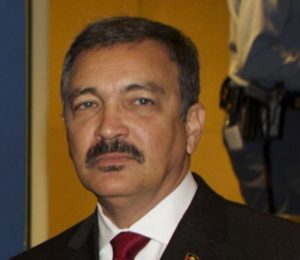The star economist in the Mottley administration has landed on a new regional, blue-ribbon perch, as CARICOM leaders agreed on a raft of measures to jump-start a stalled single market engine.
Professor Avinash Persaud, the Barbados Government’s special economic advisor has been appointed to lead a revamped Caribbean Community (CARICOM) Commission of the Economy (CCE), which is to advise CARICOM on a growth agenda.
The news was contained in the St Ann’s Declaration on the CARICOM Single Market and Economy (CSME), as CARICOM’s wrapped up a special summit on the CSME in the Trinidadian capital, Port of Spain.
“We have appointed Professor Avinash Persaud to lead a restructured Commission on the Economy to advise member states on a growth agenda for the Community,” the declaration said.
Other members of the CCE are President of the Grenada Senate, veteran trade unionist Chester Humphrey; University of the West Indies (UWI) Senior Lecturer in Economics Dr Damien King; senior economic consultant Gregory McGuire; economist Roger McLean; senior economist Dr Wendell Samuel; businessman P.B Scott; economist Therese Turner-Jones; and economist Ngozi Okonjo Iweala.
The blue ribbon brains trust also includes the French businessman and political consultant Pascal Lamy, a former Director-General of the World Trade Organisation (WTO).
The formation of the CCE was first agreed on in September 2013 also in Port-of-Spain, as leaders then sought to revive the ailing economies of the 15-member bloc.
It was created to address issues of fiscal sustainability, resource mobilization and economic infrastructure services, particularly energy and information communication technology.
The declaration outlined a number of commitments to take action at the national level in order to advance the regional integration agenda.
Among those agreements are to formalize a structured mechanism to facilitate dialogue between the Councils of the Community, the private sector and labour; and to amend the Treaty of Chaguaramas to include representative bodies of business and labour as Associate Institutions of CARICOM.
The declaration, which is not binding, calls on CARICOM member states “so willing” to move towards full free movement within the next three years, and to reinforce security mechanisms to ensure the integrity of the regime allowing the free movement of CARICOM nationals.
The leaders committed to meet again in special session on air and sea transportation during their next mid-term summit in February, known as the Intersessional meeting, to focus on this critical aspect of integration as a whole and the CSME in particular.
Agricultural workers, beauty service practitioners, barbers and security guards have been added to the agreed categories of skilled nationals who are entitled to move freely and seek employment within the Community, the leaders declared.
The leaders’ declaration also pointed out that CSME was committed to welcoming Haiti’s full integration by 2020. Agreement was also reached to work towards having a single security check for direct transit passengers on multi-stop intra-Caribbean flights – another bugbear for CARICOM nationals travelling throughout the 15-nation Community.

